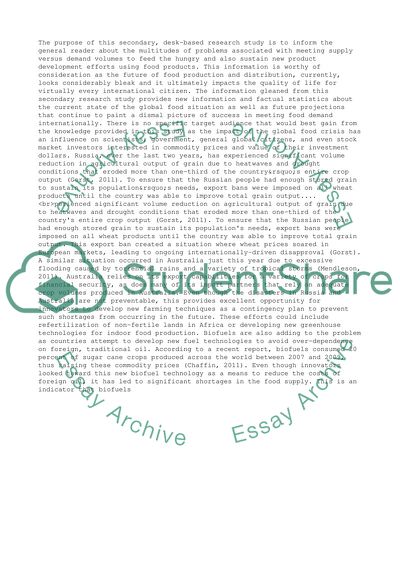Cite this document
(“Global Food Crisis Essay Example | Topics and Well Written Essays - 1500 words”, n.d.)
Retrieved from https://studentshare.org/management/1426290-global-food-crisis
Retrieved from https://studentshare.org/management/1426290-global-food-crisis
(Global Food Crisis Essay Example | Topics and Well Written Essays - 1500 Words)
https://studentshare.org/management/1426290-global-food-crisis.
https://studentshare.org/management/1426290-global-food-crisis.
“Global Food Crisis Essay Example | Topics and Well Written Essays - 1500 Words”, n.d. https://studentshare.org/management/1426290-global-food-crisis.


